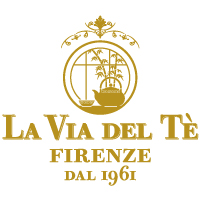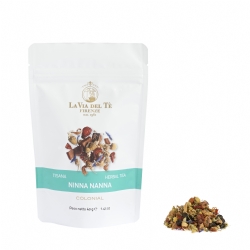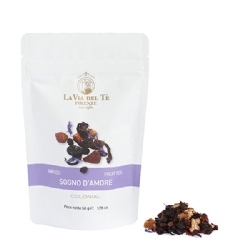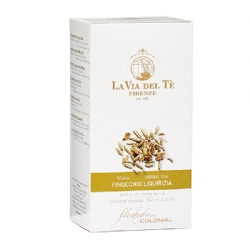
Fruit and Herbal Tea Blends
Herbal teas and infusions are known for their beneficial properties and are very appreciated for their pleasant and delicate taste. Moreover, tisanes are a valid alternative to tea, since they are generally caffeine-free.
The use of herbal teas has very long-standing roots.
The ancient civilizations knew local plants that can be beneficial for many common illnesses and diseases.
Romans and Greeks, Egyptians, Arabs and Orientals, have helped over the centuries to create a herbal science, investigating the healing properties of certain medicinal plants. During the Middle Ages, the preparations of herbal teas become more sophisticated and many Greek and Roman writings on medicine were preserved by hand copying of manuscripts in cloisters, handed down until today. The cloisters thus tended to become local centres of medical knowledge, and their herb gardens provided the raw materials for the simple treatment of common disorders.
Herbs are natural products and their chemical composition and properties vary depending on many factors. Valuable help for our well-being and their use is increasingly widespread.
There are several signals your body uses to let you know that something is wrong and you need to make some adjustments: dull skin, bloating (is a sign that your digestion is off), or If your body is under stress from toxins, this stress can wear you down and can make you feel tired.
The recommendations are always: to drink plenty of water, eat foods rich in antioxidants and drink herbal teas regularly.
Among the most common herbs used for herbal teas, there are chamomile, linden, and orange flowers useful to promote a natural rest thanks to their well-known calming properties; fennel, mint, and liquorice, always considered useful for digestion; lemon balm, verbena, dandelion, lemon grass, herbs with appreciated purifying properties or the ginger root for its recognized anti-inflammatory properties.
Fruit teas, made from hibiscus, rose hips, and dehydrated or freeze-dried fruit pieces, are digestive and tonics while herbal teas, blends of herbs carefully selected for their healthy properties, offer pleasant wellness moments.
What about summertime? Herbal teas are perfect even during the hot season, as you can drink them lukewarm, avoiding the shock of a cold drink.
Steep at 90°C, following the single product’s infusion time instructions.











